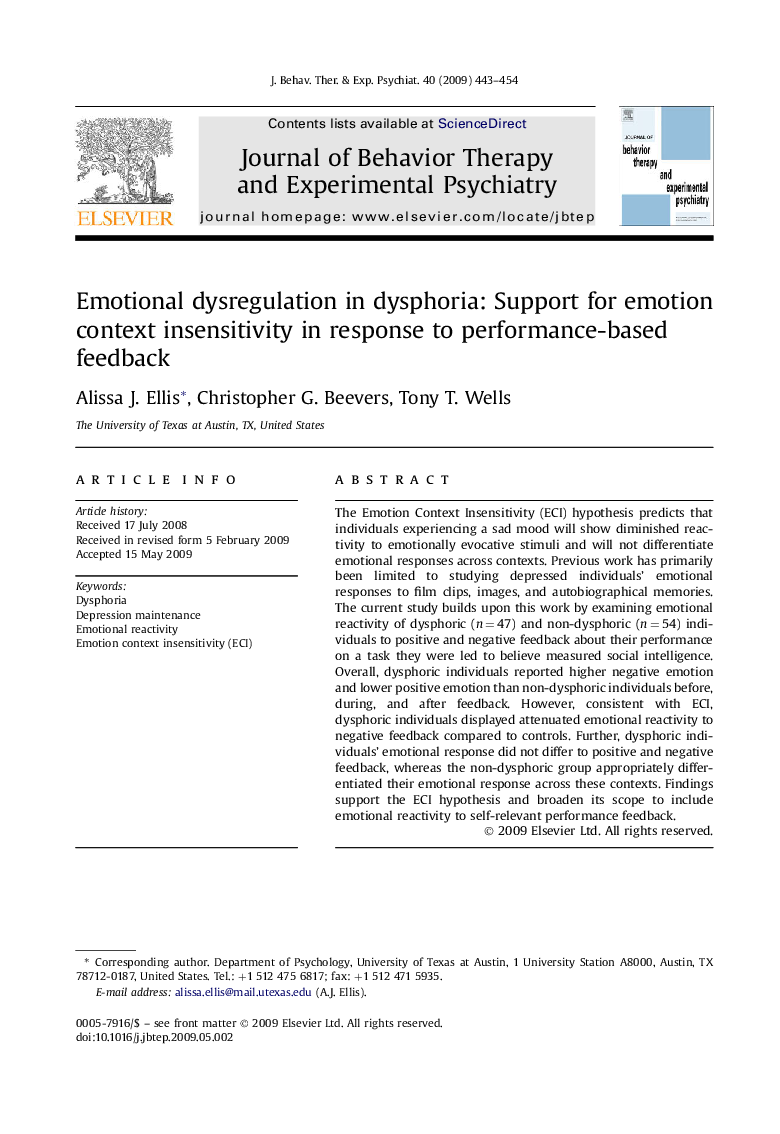| Article ID | Journal | Published Year | Pages | File Type |
|---|---|---|---|---|
| 910568 | Journal of Behavior Therapy and Experimental Psychiatry | 2009 | 12 Pages |
The Emotion Context Insensitivity (ECI) hypothesis predicts that individuals experiencing a sad mood will show diminished reactivity to emotionally evocative stimuli and will not differentiate emotional responses across contexts. Previous work has primarily been limited to studying depressed individuals' emotional responses to film clips, images, and autobiographical memories. The current study builds upon this work by examining emotional reactivity of dysphoric (n = 47) and non-dysphoric (n = 54) individuals to positive and negative feedback about their performance on a task they were led to believe measured social intelligence. Overall, dysphoric individuals reported higher negative emotion and lower positive emotion than non-dysphoric individuals before, during, and after feedback. However, consistent with ECI, dysphoric individuals displayed attenuated emotional reactivity to negative feedback compared to controls. Further, dysphoric individuals' emotional response did not differ to positive and negative feedback, whereas the non-dysphoric group appropriately differentiated their emotional response across these contexts. Findings support the ECI hypothesis and broaden its scope to include emotional reactivity to self-relevant performance feedback.
